 W
WThe 50×15 Initiative, launched by AMD in 2004 at the World Economic Forum, aims at providing accessible Internet and computers for 50 percent of the world's population by the year 2015. The initiative includes the deployment of learning labs, which are defined by 50×15 as "deliberate, measured, strategic deployments of technology solutions used to gain insight and knowledge on how best to foster digital inclusion worldwide."The Initiative ended in 2014.
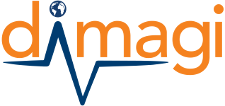 W
WDimagi, Inc. is a for-profit social enterprise based in Cambridge, Massachusetts, USA, that delivers open-source software technology suitable for low-resource settings and underserved communities. The company designs clinical interfaces, health information systems, and mobile technologies to perform patient-level disease management, clinical decision support, and health system monitoring. It also provides implementation services on open-source information and technology. Dimagi became a certified B corporation in 2008 and an incorporated benefit corporation in 2012. Dimagi has additional offices in New Delhi, India and Cape Town, South Africa.
 W
WThe Latin America and Caribbean Federation for Internet and Electronic Commerce, eCOMLAC was founded in March 1988 at a meeting held in Río de Janeiro.
 W
WThe eGranary Digital Library is a product of the WiderNet Project, a non-profit aimed at providing access to information technology and library services in developing countries.
 W
WGeekcorps is a non-profit organization that sends people with technical skills to developing countries to assist in computer infrastructure development.
 W
WThe International Institute for Communication and Development (IICD) was a non-profit foundation established by the Ministry for Development Cooperation of the Netherlands in 1996. IICD's aim was to support sustainable development through the use of information and communication technologies (ICTs), notably computers and the Internet.
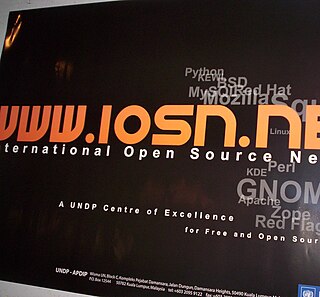 W
WThe International Open Source Network has as its slogan "software freedom for all". It is a Centre of Excellence for free software in the Asia-Pacific region.
 W
WIn computing, internationalization and localization (American) or internationalisation and localisation (BrE), often abbreviated i18n and L10n, are means of adapting computer software to different languages, regional peculiarities and technical requirements of a target locale. Internationalization is the process of designing a software application so that it can be adapted to various languages and regions without engineering changes. Localization is the process of adapting internationalized software for a specific region or language by translating text and adding locale-specific components. Localization uses the infrastructure or flexibility provided by internationalization.
 W
WThe Internet Governance Forum (IGF) is a multistakeholder governance group for policy dialogue on issues of Internet governance. It brings together all stakeholders in the Internet governance debate, whether they represent governments, the private sector or civil society, including the technical and academic community, on an equal basis and through an open and inclusive process. The establishment of the IGF was formally announced by the United Nations Secretary-General in July 2006. It was first convened in October–November 2006 and has held an annual meeting since then.
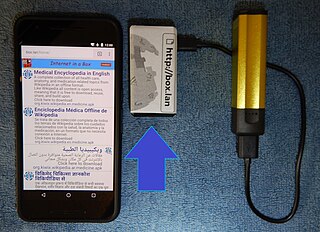 W
WInternet-in-a-Box is a low cost digital library, consisting of a wireless access point with storage, which users nearby can connect to.
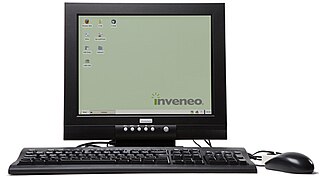 W
WInveneo is a 501(c)(3) non-profit organization based in San Francisco with focus on Information and Communication Technologies for organizations supporting underserved communities in the developing world, mostly in Africa. The organization has developed an ultra low-powered computer, called the Inveneo Computing Station, as well as a VoIP-enabled unit called the Inveneo Communication Station, and a hub server, all of which are designed to run on a 12-volt power supply. The Inveneo Computing and Communication Stations were originally based on a reference design ION A603 mini PC by First International Computer and run AMD Geode CPU.
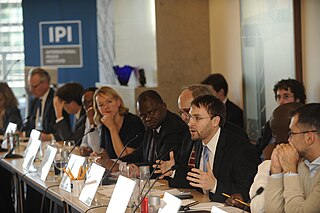 W
WNicholas Carl Martin is an American technologist, entrepreneur, and educator best known for founding the international organization TechChange. Martin has delivered a number of speeches at the United Nations, the United States Department of State, and the United States Agency for International Development (USAID) on the role of technology in international development, online learning, capacity building and m-learning. His work with TechChange has been profiled by the New York Times, Fast Company, Forbes, and the Economist. Martin has also written numerous pieces on e-learning, m-learning, and m-health for multiple organisations, including the Chronicle of Higher Education, the Stanford Social Innovation Review, The Guardian, and Dowser.org.
 W
WNation.1 was a project to create what was described as an "online country" – that is, a conceptual country based on the Internet. It was to be owned, populated and governed by the children of the world. Its borders were defined by the age of its citizens, as opposed to geography or ethnicity. The central goal of Nation.1 was to empower young people with a voice and representation in world affairs.
 W
WTactical Tech is an international nongovernmental organization that engages with citizens and civil-society organisations to explore and mitigate the impacts of technology on society. Since 2012, the organisation has been based in Berlin.
 W
WThe OLPC XO, previously known as the $100 Laptop, Children's Machine, and 2B1, is an inexpensive laptop computer intended to be distributed to children in developing countries around the world, to provide them with access to knowledge, and opportunities to "explore, experiment and express themselves". The XO was developed by Nicholas Negroponte, a co-founder of MIT's Media Lab, and designed by Yves Behar's Fuseproject company. The laptop is manufactured by Quanta Computer and developed by One Laptop per Child (OLPC), a non-profit 501(c)(3) organization.
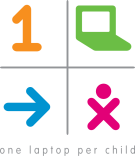 W
WOne Laptop per Child (OLPC) was a non-profit initiative established with the goal of transforming education for children around the world; this goal was to be achieved by creating and distributing educational devices for the developing world, and by creating software and content for those devices.
 W
WThe Personal Internet Communicator (PIC) is a consumer device released by AMD in 2004 to allow people in emerging countries like India, Uruguay and the Caribbean access to the internet. Originally part of AMD's 50x15 Initiative, the PIC has been deployed by Internet service providers (ISPs) in several developing countries. It is based on an AMD Geode CPU and uses Microsoft Windows CE and Microsoft Internet Explorer 6.
 W
WTactical Tech is an international nongovernmental organization that engages with citizens and civil-society organisations to explore and mitigate the impacts of technology on society. Since 2012, the organisation has been based in Berlin.
 W
WThe Technical Centre for Agricultural and Rural Cooperation ACP-EU (CTA) was established in 1983 under the Lomé Convention between the African, Caribbean and Pacific Group of States and EU member states. Since 2000 CTA has operated within the framework of the ACP-EU Cotonou Agreement with a mission to “strengthen policy and institutional capacity development and information and communication management capacities of ACP agricultural and rural development organisations. It assists such organisations in formulating and implementing policies and programmes to reduce poverty, promote [[sustainable food systems|sustainable food security, preserve the natural resource base and thus contribute to building self-reliance in ACP rural and agricultural development.”
 W
WA telecentre is a public place where people can access computers, the Internet, and other digital technologies that enable them to gather information, create, learn, and communicate with others while they develop essential digital skills. Telecentres exist in almost every country, although they sometimes go by a different names including public internet access center (PIAP), village knowledge center, infocenter, Telecottage, Electronic Village Hall, community technology center (CTC), community multimedia center (CMC), multipurpose community telecentre (MCT), Common/Citizen Service Centre (CSC) and school-based telecentre. While each telecentre is different, their common focus is on the use of digital technologies to support community, economic, educational, and social development—reducing isolation, bridging the digital divide, promoting health issues, creating economic opportunities, and reaching out to youth for example.
 W
WThe United Nations Information and Communication Technologies Task Force was a multi-stakeholder initiative associated with the United Nations which is "intended to lend a truly global dimension to the multitude of efforts to bridge the global digital divide, foster digital opportunity and thus firmly put ICT at the service of development for all".
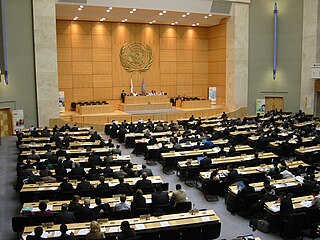 W
WThe World Summit on the Information Society (WSIS) was a two-phase United Nations-sponsored summit on information, communication and, in broad terms, the information society that took place in 2003 in Geneva and in 2005 in Tunis. One of its chief aims was to bridge the global digital divide separating rich countries from poor countries by spreading access to the Internet in the developing world. The conferences established 17 May as World Information Society Day.